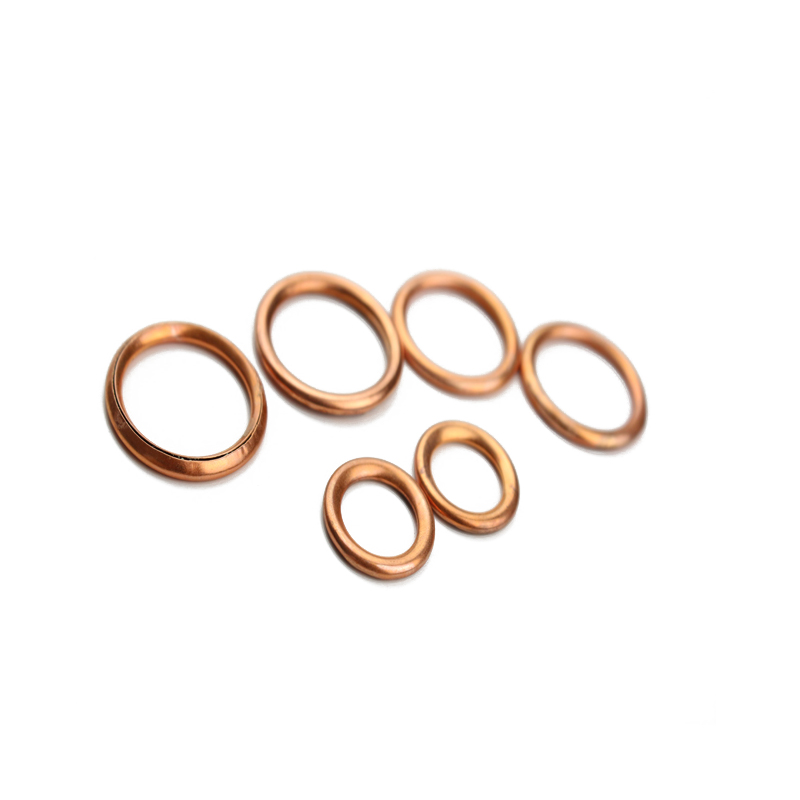Understanding the Functionality and Benefits of Stuffing Box Mechanical Seals in Machinery
Understanding Stuffing Box Mechanical Seals
The stuffing box mechanical seal is an essential component in a variety of industrial applications, particularly in pumps, compressors, and other rotating machinery. These seals play a crucial role in preventing leakage of fluids, thereby enhancing the efficiency and reliability of equipment. This article delves into the mechanics, types, advantages, and maintenance of stuffing box mechanical seals.
What is a Stuffing Box Mechanical Seal?
A stuffing box is a compartment that houses a mechanical seal or packing around a rotating shaft. It is designed to accommodate the shaft's movement while preventing the escape of the fluid being contained. The stuffing box uses either traditional packing materials or advanced mechanical seals, with the latter being increasingly favored for their superior performance.
In the case of mechanical seals, they consist of two primary components a rotating face and a stationary face. These faces are typically made from hard materials such as tungsten carbide or ceramic, which resist wear and corrosion. The seal's effectiveness depends on the precise alignment and the contact interface between these two faces.
Types of Stuffing Box Mechanical Seals
There are various types of mechanical seals used in stuffing boxes, categorized based on their design and application
1. Balanced Seals These are designed to handle high pressures and are commonly used in pumps. They distribute the pressure evenly across the seal face, reducing wear and prolonging life.
2. Unbalanced Seals These seals are often simpler and less expensive but are suitable only for low-pressure applications. They work well in lower RPM environments but can wear out quickly in high-pressure scenarios.
3. Single Seals These are the most common mechanical seals, consisting of one rotating and one stationary face. They are suitable for various applications, including water pumps and chemical processing equipment.
4. Double Seals These consist of two sets of sealing faces, one inside the other. They are used in applications where leakage is particularly hazardous, providing an extra layer of safety by containing leaks in a secondary chamber.
Advantages of Stuffing Box Mechanical Seals
The transition from traditional packing to mechanical seals has brought numerous benefits to industrial processes
stuffing box mechanical seal

1. Reduced Leakage Mechanical seals significantly minimize fluid leakage compared to packing. This is essential for environments where the escape of hazardous materials could lead to safety and environmental issues.
2. Lower Maintenance Mechanical seals require less frequent maintenance than traditional packing seals. Their durable construction and effective sealing capabilities reduce downtime and repair costs.
3. Improved Efficiency By preventing fluid loss, mechanical seals help maintain the efficiency of pumps and other machinery. This can lead to lower energy consumption and better overall performance.
4. Extended Equipment Life The wear resistance of mechanical seals can prolong the lifespan of rotating equipment. This durability can lead to considerable cost savings over time.
Maintenance and Best Practices
To ensure the optimal performance of stuffing box mechanical seals, regular maintenance and monitoring are essential. Here are some best practices
1. Regular Inspections Routine checks for wear, alignment, and signs of leakage can help catch issues before they become significant problems.
2. Proper Lubrication Ensure that the mechanical seals are adequately lubricated to prevent dry running, which can cause premature wear.
3. Operating Conditions Monitor the operating conditions carefully. Extreme temperatures, pressures, and incompatible fluids can negatively impact seal performance.
4. Installation Quality Proper installation is critical. Follow manufacturer guidelines to ensure that the seal is correctly fitted and aligned.
Conclusion
Stuffing box mechanical seals are vital for the efficient and safe operation of many industrial machines. Understanding their design, types, and benefits can help operators select the right seal for their applications. Through regular maintenance and proper installation, the longevity and effectiveness of mechanical seals can be maximized, ensuring smooth operations across a range of industries. As technology advances, we can expect further improvements in seal design and materials, allowing for even greater efficiency and reliability in mechanical sealing solutions.
-
The Ultimate Guide to Boat Propeller Bearings and Trailer Wheel Bearings
News Jul.31,2025
-
The Essential Guide to Marine Bearings and Boat Trailer Wheel Bearings
News Jul.31,2025
-
The Complete Guide to Heavy Duty Seals: Protecting Doors and Spaces Efficiently
News Jul.31,2025
-
Essential Guide to Marine Shaft Bearings and Boat Trailer Axle Bearings
News Jul.31,2025
-
Comprehensive Guide to Marine and Trailer Bearings for Safe Boating and Transport
News Jul.31,2025
-
Comprehensive Guide to Automotive Oil Seals: Protecting Your Engine and Shafts
News Jul.31,2025
-
Understanding Automotive Oil Seals: Essential Components for Engine and Shaft Protection
News Jul.30,2025
Products categories















